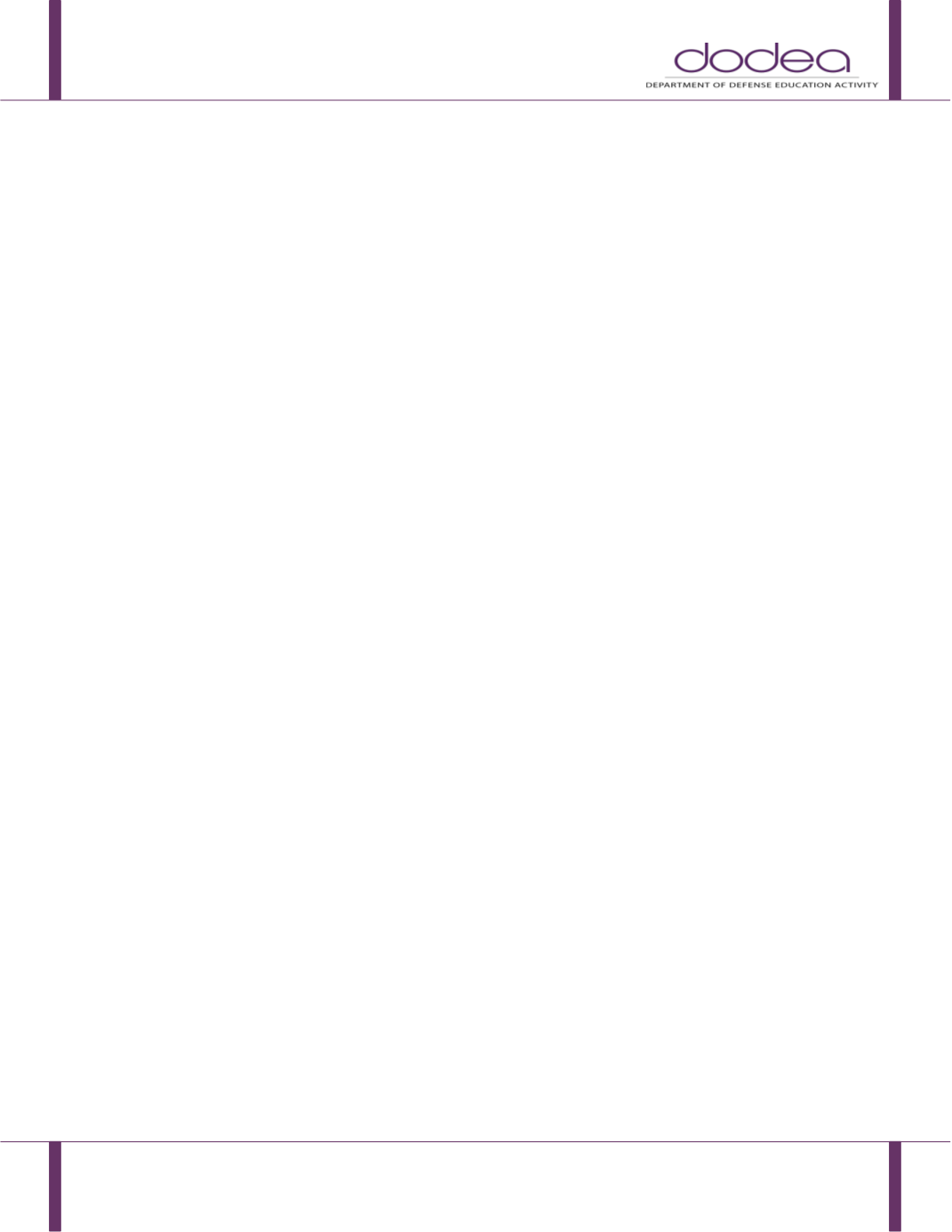

1342.12 Companion
July 12, 2017
Page 51
Emotional Impairment Eligibility Guide
"Emotional Impairment" means condition confirmed by clinical evaluation and diagnosis and that, over a long
period of time and to a marked degree, adversely affects educational performance and exhibits one or more of the
following characteristics:
a)
Inability to learn that cannot be explained by intellectual, sensory, or health factors.
b)
Inability to build or maintain satisfactory interpersonal relationships with peers and teachers.
c)
Inappropriate types of behavior or feelings under normal circumstances.
d)
A general pervasive mood of unhappiness or depression.
e)
A tendency to develop physical symptoms or fears associated with personal or school problems.
f)
Includes students who are schizophrenic, but does not include students who are socially maladjusted,
unless it is determined they are emotionally impaired.
Required Assessments
Observation; review of existing school educational and health record and a social maturity index or behavior rating
scales, clinical evaluation and diagnosis (within three years; not required for triennial); educational impact analysis.
The CSC must gather the necessary information to meet the eligibility criteria.
Recommended Assessments to assist the CSC to meet eligibility criteria
After review of all records, the CSC determines if there is a need to obtain additional assessments (e.g.
developmental history, cognitive, academic, language).
Criteria
There is documentation of an Emotional Impairment. One or more of the following characteristics, exhibited over a
long period of time and to a marked degree* (check all that apply):
☐
An inability to learn that cannot be explained by intellectual, sensory, or health factors;
☐
An inability to build or maintain satisfactory interpersonal relationships with peers and teachers;
☐
Inappropriate types of behavior or feelings under normal circumstances;
☐
A general pervasive mood of unhappiness or depression; or
☐
A tendency to develop physical symptoms or fears associated with personal or school problems.
☐
Includes students who are schizophrenic, but does not include students who are socially maladjusted,
unless it is determined they are emotionally impaired.
The CSC will list and/or describe:
AND
Due to the identified Emotional Impairment, the student is educationally impacted and requires specially
designed instruction. The CSC will list and/or describe.
*This is the limiting factor that reflects the need for maladaptive behaviors associated with one or more of the
characteristics to be demonstrated over a long period of time. Such evidence is needed to help the CSC rule out a
number of temporary adjustment reactions such as developmental changes (e.g., puberty) or normal reactions to
psychosocial stressors (e.g., moves, family problems, and separations from or death of a loved one). Marked
degree means the student's negative behaviors must be observable and acute, and they must produce significant
distress either to the student or to others in his or her environment. The demonstrated behaviors must be the
result of the identified emotional condition.


















